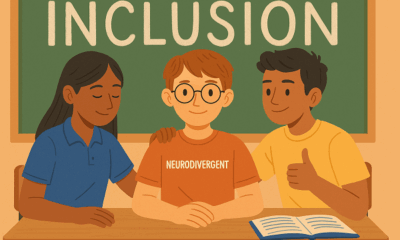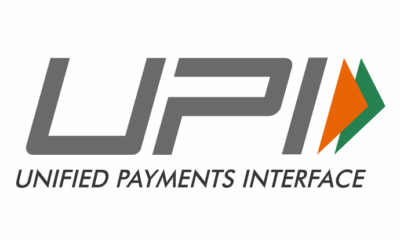News
Webinar: School & Infrastructure Experts Discuss The Future of Learning Spaces
Schools in India are getting ready to reopen, what will they look like post-COVID lockdown? Here’s our webinar exploring the Future of Learning Spaces – the new pedagogy, the govt. policies, and the changes in infrastructure. Read on.

This webinar was conducted with 5000+ viewers on 9th September 2020 by ScooNews, in collaboration with Godrej Interio, that discussed the Future of Learning Spaces when the school will reopen.
(MODERATOR)
Dr Arunabh Singh, Director Nehru World School, Chairperson FICCI Arise, Western UP
(SPEAKERS)
Mr Sameer Joshi, Head, Workspace Research & Ergonomics, Godrej Interio
Ms Meena Murthy Kakkar, Design Head & Partner, Envisage
Dr Swati Popat Vats, President, Podar Education Network
Ms Geetika Bahuguna, COO (Services), Millennium Education Management Pvt. Ltd
Mr Himmat Singh Dhillon, Headmaster, The Lawrence School, Sanwar

Excerpts
Dr Arunabh Singh: How do you see the network of Millenium schools when they would reopen? What kind of pedagogical shifts would it require?
Geetika Bahuguna: Let me start by telling you what we are currently doing. According to us, the change has to happen in 2 phases and we have covered the 1st phase of preparing the schools for this shift. Millenium schools have very strong learning philosophy, culture, curriculum and infrastructure which helps the learning approach. But since the lockdown, the use of infrastructure that helped in not only academic learning but also skill-based learning was out of the window, we created virtual portals. With the help of teachers, matter experts and mentors, we also updated accordingly.
When NEP came out, we mapped out a 10-year-old 5E learning approach that is used in millennium schools with the NEP and realised we were already 80 % there. So what we have planned for reopening is that only 33 % of total students would come to school for 2 days a week. This will bring that socio-emotional bonding back between the teacher and children. Because even when children are cognitively learning at home and the virtual portals are working fine, the emotional connect is still left out. Reopening would bring that back and let us use the infrastructure along with the virtual learning modules, that are carefully drawn, to help in the kind of learning millennium schools believe in.
Arunabh Singh: In your opinion, what would you say the schools would require when they reopen?
Sameer Joshi: We carried out a survey of 350 students and parents for teachers and schools to understand their mindset in terms of online learning and for when schools may reopen. What is interestingly surprising is that 33% of parents do not wish to send their wards to school anymore out of concern for their safety. And this is understandable when you look at the office/school spaces, they weren’t initially built to stop the spread of infection but to bring people together. So the main concern comes down to infrastructure.
Another one is staggering timing of crowd amongst the campus. What school basically need to do is not only create safer spaces but also be visually communicative of the safety measures they are taking for students as well as teachers.
There need to be several interventions regarding a variety of points like protocols, isolation (in case needed), safety procedure and whatnot. We have come up with a summary that gives out the possible interventions that are emerging as a critical need for the schools, both for online and on-campus studies.
Dr Arunabh Singh: How are you planning to regulate 4-5-year-olds when schools reopen?
Dr Swati Popat Vats: Reopening of schools and educational institutes is going to be the new normal because schools that we knew of do not exist any more. There will be a new kind of reality in schools. As for children, we should remember that since the last 6 months, they are no more in a habit of ‘sitting’ in one place. But as the schools reopen, they will be expected to ‘sit,’ not move around and be socially distanced. For this, we have realised that the ‘Bubble Format’ has been very useful, we are seeing that in schools abroad. It is not a literal bubble but a group of children with one teacher, they do not interact with another group or teacher. What will be challenging is that Indian schools have more number of students so not all of them will be able to attend at once. And for those bubbles to remain non-contagious, we will have to make sure to keep an eye on no-exchange of items amongst children, no close proximity contact, etc. It will be difficult and challenging, a lot of activities like playing with sand/water will not be possible in the beginning in order to keep safety a priority.
What can be done to ensure this includes:
- Proper training of the staff so they do not become too obsessed over a lot of things and stress unnecessarily.
- Parent-partnership is going to be very important.
- To open early schools at the last after older classes have reopened and it is been studied how things are going.
- The physical structure of the classroom to keep it safe and comfortable for the children to sit for a longer duration as they are not used to it anymore.
What might help parents and children, is virtually getting used to the transition before physically getting used to it.
Dr Arunabh Singh: What are the expected changes for residential schools like The Lawrence School?
Himmat Singh Dhillon: In every crisis, there is a hidden opportunity! What is requite is infrastructure and space currently which we have. Having said that we have come up with SOPs during all this time we had. According to which there will be staggered induction of some grades like class 12, there are going to be decontamination zones, holding areas for quarantine and a set process of integration for students as well as teachers that will be a minimum of 14 days. We are very thankful to have received guidance from the secretary of education who is our chairperson and have had collaboration like, Indian Public School Conference to map out a do-able, well thought out SOP. As for the common areas, there will be no congregation allowed whether, during meals or breaks, masks and shields will be mandatory. Sanitization of not only hands but of common area, surfaces, items will be a priority, children and teachers will not come in face to face contact with the cleaning crew and all the staff members will have Aarogya Setu apps. We are going to set the classrooms and dormitories in a way that abides with the 6-feet distance rule and further bring similar changes to the safety of children and teachers.
Dr Arunabh Singh: As an architect, what do you think are the areas of schools that need more analysis after this pandemic?
Meena Murthy Kakkar: It is extremely important to understand the demographic population of a school, concerns will vary accordingly. A meticulous training of the staff is significant to equip them for the reopening of schools. Space layout and circulation is to be chalked out literally to avoid overcrowded routes for students and teachers. And of course, individual class/activity room layouts need to be looked at as well. Process of functioning will have a lot of administrative part in it apart from design.
What usually gets looked over at is the building’s services and ventilation, we need the already present air to be cleaner apart from all the sanitization of spaces and materials. A critical look at technology and communication is required as well.
More importantly, a health audit of the building should be done before putting in expenditure in all the redesigning, to check what already is available. And after all that we do not want the schools to look like hospitals, we need to address the fears of children and parents in order to encourage them to come back.
Dr Arunabh Singh: How are classrooms going to provide that feeling of collaboration under these social distancing times and norms?
Geetika Bahuguna: Collaboration is of two kinds physical and mental, we are leaning towards the mental collaboration where a child is able to share thoughts connected with the idea and exchange views because that is how learning happens. At the bottom line comes the training of children and teachers because once the students are in school, it is a whole different play so we are planning to start with the senior lot.
Dr Arunabh Singh: What is your advice for people who run early childhood schools?
Dr Swati Popat Vats: Firstly please stop calling them pre-primary, that brings the focus on preparing them for primary and removes it from the Early Childhood category.
Second training and mock drill before children come back is going to be extremely necessary.
Lastly, it is prime to have parents trusting you and feeling safe with leaving their children with you so parent-partnership is going to be of utmost importance.
Dr Arunabh Singh: How would you bring the parents to trust and feel safe in sending their children to residential schools?
Himmat Singh Dhillon: Faith can only be there when there is communication and trust. There has to be a relationship with the parents. To do so, we share as much as possible with them, students and all the stakeholders. We would also share the SOPs and would invite suggestions as to what more can be done for the children once they are back at the campus.
I would also like to say that there are two ways of looking at a residential school. One, it is isolated during this pandemic and two, there is not yet a single case on the campus. All we want to tell the parents is that we will leave no stone unturned in taking care of them.
Arunabh Singh: What is your advice to people who are starting to design a school?
Meena Murthy Kakkar
- Look at the indoor air quality, pressure intake and circulation. Do not restrict learning to authentic style classroom, make sure to incorporate open spaces into the building.
- Multiutalitarian spaces are needed, especially in these social distancing times. Flexibility is the new buzz word in school design.
- Incorporate technology into the system. The learning took a paradigm shift recently and some of the technology and online learning is here to stay along with the tech tools, do not avert from them, instead accept them.
Dr Arunabh Singh: What can we expect from companies like Godrej Interio, what can we expect to learn from White Paper?
Sameer Joshi: Investment in the flexibility of infrastructure, design and other areas seems to be the way forward. What White Paper deals with is what was just discussed here – the generic problem; what changes do I make; how do I take care of safety, etc. It provides guidelines based on survey and research on a vast number of queries.
Earlier, we came out with another White Paper that dealt with the health and wellness of teachers, where a survey of 600 teachers was done. We need to add that extract of health and wellness to dimension as well.
To contact Godrej Interio for school infrastructure, just go to the website and put in the contact info and the team will reach out to you.
Dr Arunabh Singh: What must be done if a child tests positive for COVID?
Dr Swati Popat Vats: So, if a child is positive, the entire bubble should be quarantined. If more than one child is positive, the entire school should be closed and quarantined for at least 14 days. Surely, our government will come out with guidelines as well. Meanwhile, what schools must remember is to be transparent and not hide if a positive case is found. Reporting the case is important, do not worry about reputation, you will not lose anything for being straightforward but you might lose if you do not come out clean.
Dr Arunabh Singh: What about school in semi-urban settings?
Dr Swati Popat Vats: Local governments will have to be reached out to in case of all the budget-related constraints. Reach out to ECA & NAPER if you need trained staff or need parents to understand what to expect during these times, etc.
Dr Arunabh Singh: Apart from all this, there is a 5-page SOP that has been launched and it shows several demographics and geographical variations that were kept in mind. Check it out.
Sameer Joshi: There is a lot of anxiety about it, but we need to give that positive message that it will be better now. Yes, a lot of interventions are required; people, process, workspace framework, all of it goes hand in hand. But with these difficulties, training, preparations and much more, we would go back to school for sure. As one of the principals said during the White Paper survey, “We build citizens of India, we instil discipline in them, we build morals and teach them a whole lot of things; it is just not about only textbooks and exams, there is no alternative to going back to schools.”
Education
AI to Become a Core Subject from Class 3: India’s Big Leap Toward a Future-Ready Generation

In a landmark move to make India’s school system future-ready, the Department of School Education & Literacy (DoSE&L), Ministry of Education, has announced that Artificial Intelligence (AI) and Computational Thinking (CT) will be introduced as part of the school curriculum from Class 3 onwards, beginning in the academic year 2026–27.
The initiative marks a major step in preparing students for an AI-driven world, ensuring early exposure to technological literacy, ethics, and problem-solving. The curriculum, currently being developed through a consultative process with CBSE, NCERT, KVS, NVS, and States/UTs, will fall under the National Curriculum Framework for School Education (NCF-SE) 2023, in alignment with the National Education Policy (NEP) 2020.
A stakeholder consultation held on 29th October 2025 brought together education leaders, including Prof. Karthik Raman from IIT Madras, who heads the CBSE expert committee responsible for shaping the AI & CT curriculum. The focus is on designing a meaningful, inclusive framework that integrates AI not as an advanced elective but as a foundational skill — comparable to literacy and numeracy in importance.
Shri Sanjay Kumar, Secretary, DoSE&L, emphasised that AI education should be viewed as a universal skill closely linked to real-world applications. “Every child’s distinct potential is our priority. Policymakers must define minimum thresholds and evolve them with changing needs,” he said. He also stressed on teacher training as the backbone of successful implementation, with modules under NISHTHA, and resource materials being prepared by NCERT and CBSE.
The Ministry plans to release AI handbooks and digital resources by December 2025, followed by a grade-specific rollout supported by video-based learning materials and structured training.
By embedding AI education from the foundational years, India aims to nurture a generation that understands, creates, and applies technology ethically — transforming the vision of AI for Public Good into everyday classroom reality.
Education
Dharav Utsav to Celebrate Rajasthan’s Cultural Heritage and Local Talent

Education
Beyond the Syllabus: School Teachers’ Insights on Project-Based Learning

How classroom experiences are being reshaped through projects, inquiry, and authentic learning
As the classroom grows beyond the boundaries of textbooks and blackboards, so too does the role of the teacher, and the very meaning of learning. Project-Based Learning (PBL), once considered a niche innovation, is increasingly being embraced by educators across schools in India. But what happens when PBL moves from theory to practice?
To answer this, we turned to the people at the heart of the learning experience: teachers.
In conversations with educators from diverse school contexts, one theme was clear: PBL is not just a teaching strategy; it’s a transformation in how students learn, engage, and grow.
From Worksheets to Real-World Work: How PBL Differs from Traditional Homework
One of the clearest contrasts teachers observed was how PBL moves learning from repetition to relevance. Traditional homework often reinforces information through rote exercises. PBL, by contrast, asks students to apply their knowledge to solve problems, create products, or investigate issues that matter to them.
One teacher shared how using PBL to raise student awareness about water pollution was a hit in the class. Instead of just assigning problems, the students were made to create awareness posters, conduct surveys in their neighbourhood, and suggest solutions through group presentations. The teacher also noted how the students took the lead, and had an ownership over this project that they usually don’t showcase.
The shift from repetition to application fosters deeper engagement. Several teachers noted that students who previously struggled to stay motivated with homework showed renewed interest when asked to take on real-world challenges.
Changing Roles: Teachers as Facilitators, Not Just Instructors
Project-Based Learning also changes the role of the teacher, who went from being the sole source of knowledge to a guide who supports inquiry and exploration.
One common change teachers noticed was on how they had to let go of control in the classroom. Naturally, the students now had to work on projects on their own, and could only come to the teacher for guidance and help. The teachers noted that they helped their students ask the right questions, find credible sources, and evaluate their work, instead of completely placing the burden of learning on the teacher themselves.
This change isn’t always easy. It requires a shift in mindset and in many cases, rethinking how time is used in class. But most teachers agree: the shift is worth it. PBL has encouraged interdisciplinary approaches, made space for collaborative learning, and created more meaningful student-teacher interactions.
Unlocking Student Potential: What PBL Offers Beyond Academics
Academic performance remains important, but a lot of teachers repeatedly pointed out that PBL nurtures a broader set of skills, like critical thinking, collaboration, communication, and creativity. One teacher particularly noted on how their quietest students became ‘leaders’, and became outspoken when it came to presenting their ideas and projects. While not directly, PBL helped these students find their voices, and find confidence in their effort and abilities.
Students learn to manage time, negotiate roles, and solve problems, skills that aren’t always reflected in exam scores but are vital for life beyond school. For many teachers, the most rewarding aspect of PBL was watching students take initiative, work through failure, and reflect on their learning.
Widening the Circle: Strategies for Scaling PBL in More Classrooms
While the benefits are clear, teachers acknowledged that implementing PBL at a large scale comes with challenges, like limited time, rigid curriculum structures, and unfamiliarity among teachers.
They offered a few practical suggestions for schools and educators considering wider adoption:
- Start Small and Build Confidence: Starting with short projects aligned to the unit you are already teaching introduces PBL in an easy manner. This way, teachers do not have to worry about overhauling their curriculum, or for making huge changes to their current teaching methods.
- Encourage Collaboration Among Teachers: Joint planning across subjects makes projects richer and more integrated. This also promotes interdisciplinary skills among students, and allows them to craft solutions using different subjects and skillsets.
- Make Time for Reflection: Embedding opportunities for students to present, critique, and reflect helps solidify learning. By reflecting on their projects and mistakes, they can understand how they can improve their approach to PBL.
- Support Professional Development: Teachers emphasized the need for ongoing training, not just one-off workshops but long-term spaces for peer sharing and mentorship. This continuous development would cement and solidify the methods and outcomes that will maximise using PBL for student benefits
Looking Ahead: Redefining Success in Education
PBL challenges traditional ideas of what learning looks like. It pushes students to move beyond memorization, and it challenges teachers to rethink their methods. But more than anything, it opens up the classroom to ideas, to communities, and to possibilities. No longer are students just preparing for exams, but also for the complex world outside school.
As educators continue to navigate the changing landscape of education, the insights from teachers point us toward a hopeful future, where learning is meaningful, relevant, and rooted in real-world experience.
This article is authored by Mrs. Padmashini M Patro, Principal, Air Force School Bamrauli
Education
Over 1 Lakh Single-Teacher Schools Educate 33 Lakh Students Across India: MoE Data

Education
Over 3 Lakh Schools Join Hands for India’s Largest-Ever Innovation Challenge: Viksit Bharat Buildathon 2025

In a historic moment for Indian education, more than 3 lakh schools across the country came together to participate in the Viksit Bharat Buildathon (VBB) 2025, the largest live school innovation challenge ever organised in India. The nationwide event was inaugurated in New Delhi by Union Education Minister Dharmendra Pradhan, marking a significant milestone in the Government’s efforts to embed creativity, innovation, and problem-solving into the school ecosystem.
The Viksit Bharat Buildathon, organised by the Department of School Education & Literacy (DoSEL) in collaboration with Atal Innovation Mission (AIM), NITI Aayog, and AICTE, saw over one crore students from Classes 6 to 12 working simultaneously during a 120-minute live innovation session. Students teamed up in groups of three to five to design prototypes and propose solutions under four themes — Atmanirbhar Bharat, Swadeshi, Vocal for Local, and Samriddhi.
While inaugurating the event, Minister Pradhan interacted virtually with students of PM SHRI Government High School, Khorda, Odisha, and later visited Delhi Public School, Mathura Road, and Kendriya Vidyalaya No. 2, Delhi Cantt. Commending students for their creativity, he said, “The vision of Viksit Bharat will be realised through the innovative spirit of our young learners. These ideas will not only address domestic challenges but also create global models for change.”
The event drew widespread participation, with Uttar Pradesh leading the numbers (78,206 schools), followed by Maharashtra (41,198), Gujarat (20,017), and Madhya Pradesh (18,129). Other states like Tamil Nadu (16,370), Bihar (15,732), Odisha (12,344), and Haryana (11,567) also recorded impressive engagement, showing the growing momentum for grassroots innovation across regions. Even smaller territories like Ladakh (358), Puducherry (149), and Andaman & Nicobar Islands (171) participated actively, reflecting the nationwide reach of the initiative.
According to Sanjay Kumar, Secretary, DoSEL, this unprecedented participation signals a transformation in how Indian students approach learning. “This one-of-a-kind movement strengthens innovative thinking and enhances the problem-solving capabilities of students across India,” he said. Deepak Bagla, Mission Director of AIM, called the initiative a “mass movement connecting schools in remote villages with those in metropolitan cities through innovation.”
A New Chapter for Indian Education
The Viksit Bharat Buildathon signifies more than just a hackathon — it reflects a systemic shift in Indian education towards experiential and innovation-led learning. As schools across the country engage in design thinking, tinkering, and collaboration, students are being equipped not just with knowledge, but with the mindset and skills needed to build a self-reliant India.
By nurturing creativity from an early age and fostering partnerships between schools, government bodies, and industry, the Buildathon is shaping a generation ready to contribute to the vision of Viksit Bharat 2047 — a developed, empowered, and innovation-driven India.
Education
17-year-old Innovator Designs Learning Tools for the Visually Impaired

At just 17, Singapore-based student Ameya Meattle is proving that age is no barrier to impact. What began as a small idea to make education more accessible has evolved into a mission that is transforming how visually impaired learners experience learning and skill development.
Ameya founded Earth First at the age of 14 — a social enterprise that helps visually impaired individuals “earn and learn” by creating sustainable, eco-friendly products. Working with eight NGOs across India and Singapore, the initiative has trained more than 100 visually impaired students and launched over 23 sustainable product lines, from tote bags and jute placemats to macramé planters. Each design is adapted to provide hands-on learning opportunities and help trainees gain confidence in both craft and enterprise.
Beyond social entrepreneurship, Ameya has focused deeply on education and technology. He led a Python programming course for 50 visually impaired students, designing custom training modules that made coding accessible through screen readers and tactile tools. By introducing technology as a viable career pathway, Ameya hopes to help students move from manual tasks to high-skill, digital opportunities.
His work also extends into assistive technology research. Under the mentorship of Dr. Pawan Sinha at MIT, Ameya developed a VR-based diagnostic game to assess visual acuity in children — turning the process into an interactive experience rather than a clinical test. The tool is being piloted at MIT’s Sinha Lab and with Project Prakash in India, helping doctors evaluate and track visual development before and after eye surgeries.
In addition, during his internship at the Assistech Lab at IIT Delhi, Ameya worked on designing tactile STEM teaching aids, such as accessible periodic tables and coding tutorials for visually impaired learners. His goal, he says, is not just to innovate but to make scientific learning inclusive and joyful for all.
Ameya’s work highlights how education, empathy, and innovation can intersect to create a more equitable future — one where technology serves not just progress, but people.
Education
Ministry of Education Urges Schools to Adopt UPI for Digital Fee Payments, Promoting Ease of Schooling
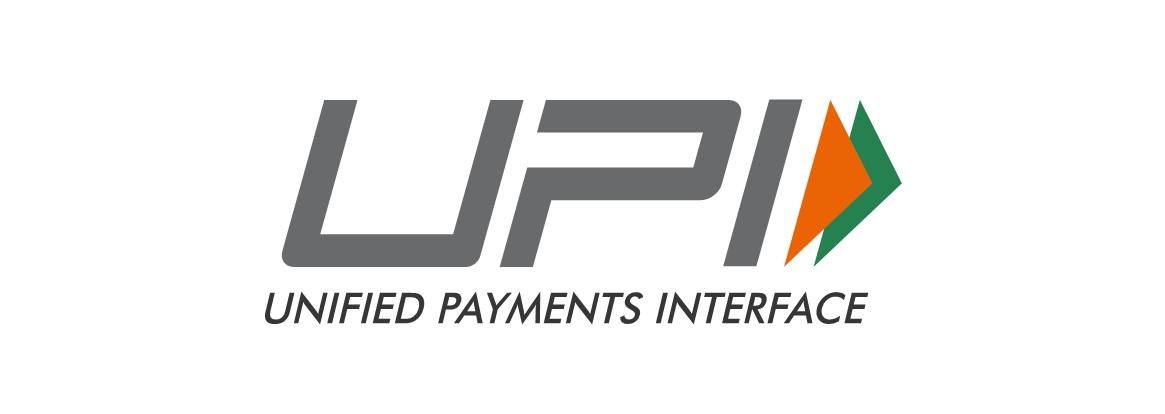
Education
Supreme Court Calls for Early Sex Education in Schools: “Not from Class IX, But from a Younger Age”

In a landmark observation, the Supreme Court of India has emphasised the urgent need to introduce sex education at a younger age, rather than waiting until Class IX as is the current norm. The apex court stated that children should be informed and sensitised about the physical and emotional changes that accompany puberty — and taught the necessary care and caution that come with it.
The observation came from a Bench comprising Justice Sanjay Kumar and Justice Alok Aradhe, which noted that the absence of early sex education leaves children vulnerable to misinformation and misunderstanding during their formative years.
“Sex education should be provided to children from a younger age and not Class IX onwards. It is for the authorities concerned to apply their mind and take corrective measures so that children are informed of the changes that happen after puberty,” the court stated.
The Bench made the remarks while hearing an appeal filed by a 15-year-old boy, who had been denied bail by the Allahabad High Court in a case under Sections 376 and 506 of the Indian Penal Code (IPC) and Section 6 of the Protection of Children from Sexual Offences (POCSO) Act. Recognising that the accused was himself a minor, the Supreme Court had earlier granted him bail in September 2025.
In the same case, the Court had directed the Government of Uttar Pradesh to submit an affidavit explaining how sex education is currently implemented in schools. The state responded that sex education is introduced only in Classes IX to XII, following NCERT guidelines. However, the Bench expressed concern over this delayed introduction and urged policymakers to revisit the framework to ensure children receive age-appropriate education much earlier.
The Court set aside the High Court’s order and made the juvenile’s bail permanent until the completion of the trial. More importantly, its remarks have reignited the national debate on the need for comprehensive sexuality education in India, which many experts argue is crucial to preventing abuse, reducing stigma, and promoting healthy development among adolescents.
Education experts have long maintained that early, factual, and inclusive discussions about puberty, consent, and emotional health must begin before adolescence — ideally in primary school — to prepare children for real-world experiences and relationships. The Supreme Court’s observation is expected to prompt renewed policy discussions on revising the sex education curriculum nationwide.
Education
Delhi Government Launches Online First Aid Training Programme for Teachers
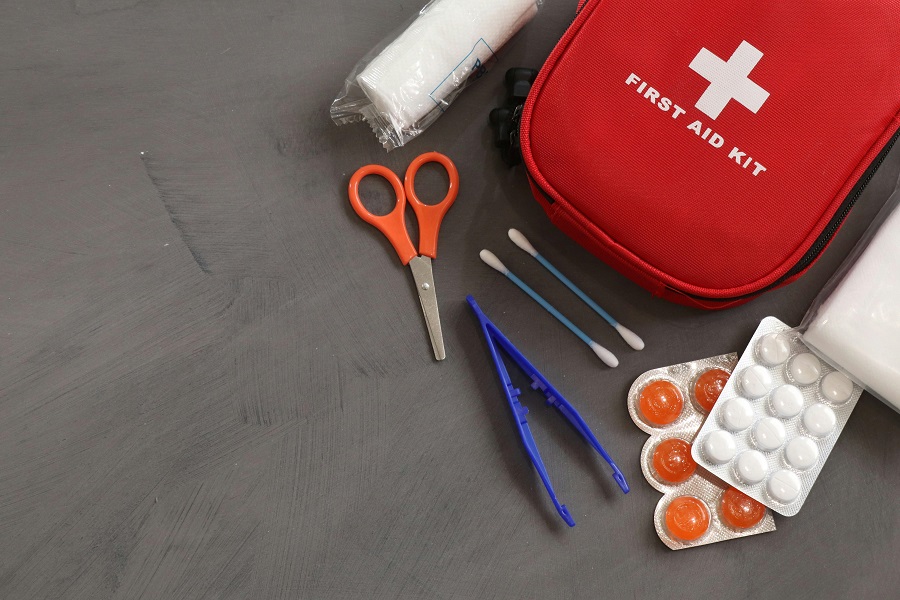
The Delhi government has introduced a new online training programme designed to equip teachers with essential first aid skills to respond effectively during health emergencies in schools.
According to a circular issued by the State Council of Educational Research and Training (SCERT), the course — titled “First Aid – To Improve Human Reaction in Challenging Health Situations” — will be conducted under the Massive Open Online Course (MOOC) format. The training is mandatory for all teachers and will run from October 9 to October 19, 2025.
The initiative aims to increase awareness about the importance of readiness in medical emergencies and the role of first aid in saving lives. It will also educate teachers on maintaining functional first aid kits in classrooms and demonstrate practical methods for administering care in real-life situations.
Teachers must achieve at least 70 per cent in each assessment to complete the course successfully. Upon completion, participants will receive certificates, which can be downloaded directly from the platform.
By introducing this online training, the Delhi government seeks to build a culture of preparedness and safety across schools. With thousands of teachers gaining basic emergency response skills, the initiative is expected to significantly improve the ability of schools to manage sudden health crises and ensure student well-being.
Education
Atal Innovation Mission and IFCCI Join Hands to Scale Up Atal Tinkering Labs Across India
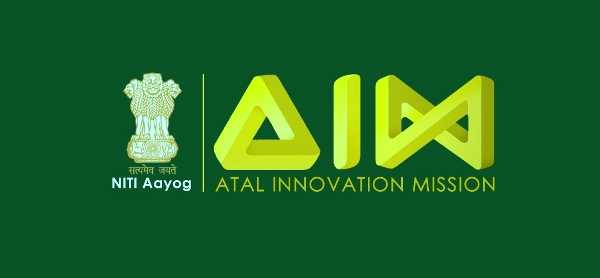
The Atal Innovation Mission (AIM), NITI Aayog, and the Indo-French Chamber of Commerce & Industry (IFCCI) have signed a Statement of Intent (SoI) to strengthen and expand the Atal Tinkering Labs (ATLs) network across India. The agreement, formalised at the French Embassy in New Delhi during IFCCI’s 3rd CSR Connect Day 2025, marks a significant step in fostering STEM education, digital literacy, and innovation among school students.
The event was attended by H.E. Thierry Mathou, Ambassador of France to India, who praised the partnership for deepening Indo-French collaboration in social development. He highlighted that 2026 will mark the India–France Year of Innovation, encouraging businesses from both nations to invest in sustainable, community-driven impact initiatives through Corporate Social Responsibility (CSR).
Through this partnership, IFCCI and AIM aim to mobilise CSR contributions from French and Indian companies to improve infrastructure, enhance hands-on learning experiences, and bridge the gap between industry and education. IFCCI, which has already executed over 86 CSR projects benefiting more than 15,000 people across India, will leverage its network to support ATL expansion, particularly in underserved schools.
Mission Director of AIM, Deepak Bagla, noted that over 11 million students have already benefitted from the ATL initiative, which he called “one of the world’s largest grassroots innovation programs.” He said, “From the northernmost village school to the southernmost, innovation is thriving everywhere. The real story lies not in the scale, but in the creativity of the ideas students are building.”
A Shared Vision for Inclusive Innovation
The collaboration aims to make innovation accessible to all students by promoting digital tools, teacher training, and student challenges that inspire curiosity and problem-solving. IFCCI Director General Payal S. Kanwar added, “This partnership is a step forward in empowering youth with 21st-century skills. We aim to bridge the gap between industry and education and make innovation accessible to every student, especially in underserved regions.”
However, as the Atal Tinkering Labs expand, addressing operational challenges remains crucial. Reports by UNICEF and The New Indian Express underscore that access to digital tools alone cannot guarantee innovation without inclusive design, mentorship, and ethical technology use. UNICEF’s SPARK Labs model, which links creativity with social change, offers a useful reference — encouraging schools to blend innovation with empathy, inclusion, and purpose.
Challenges and Areas for Improvement
Despite the ATL program’s remarkable reach, a 2023 assessment highlighted several gaps. Nearly 58% of ATL teachers lack a STEM background or structured training, resulting in inconsistent mentorship. In many schools, ATL sessions are not integrated into the timetable, limiting daily engagement. Moreover, less than 10% of schools report active student participation due to limited guidance and parental scepticism about its academic value.
Operational hurdles like irregular funding, defective equipment, and poor monitoring systems have also hindered consistent performance. Some schools struggle to maintain labs once initial grants are exhausted, while others lack a mechanism to track outcomes effectively.
The Way Forward
For the AIM–IFCCI partnership to achieve its full potential, a few key steps can strengthen impact:
-
Teacher Capacity Building: Introduce regular certification-based training programs, preferably in collaboration with universities and tech firms.
-
Curriculum Integration: Embed ATL projects within school timetables and link them with existing subjects like science and mathematics.
-
Mentorship Networks: Connect schools with local innovators, start-ups, and CSR professionals for year-round engagement.
-
Monitoring Systems: Deploy digital dashboards to track participation, tool usage, and project outcomes for better transparency.
-
Community Awareness: Conduct parent and community outreach sessions to showcase how tinkering enhances academic learning and future employability.
If executed effectively, this Indo-French collaboration can redefine India’s innovation ecosystem by turning every school into a space where curiosity meets creation. The challenge now lies in ensuring that every student, regardless of background, not only has access to a lab but also the guidance and confidence to build something meaningful within it.
-
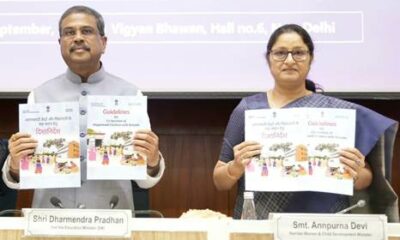
 Education3 months ago
Education3 months agoMoWCD and MoE Release Guidelines for Co-location of Anganwadi Centres with Schools
-
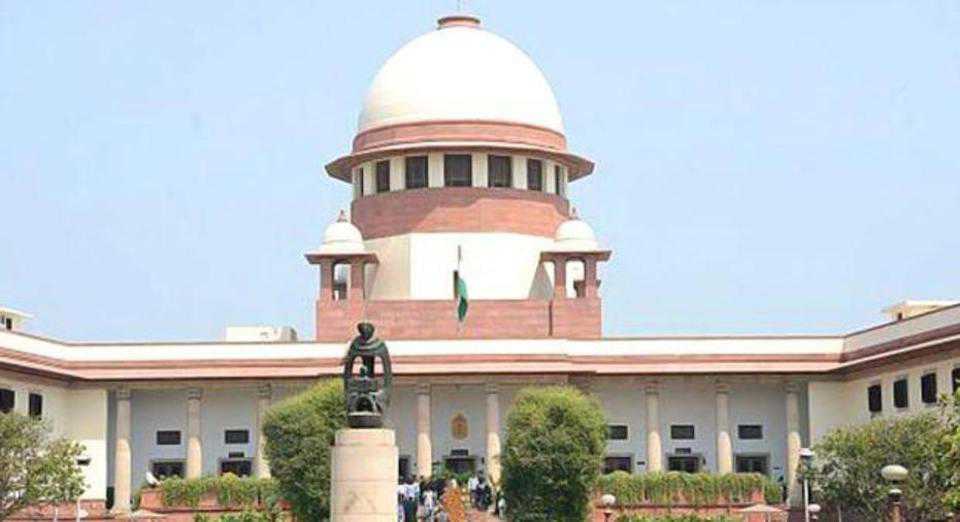
 News3 months ago
News3 months agoSC Seeks Centre’s Response on PIL for Transgender-Inclusive School Textbooks
-
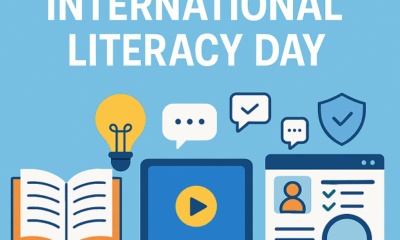
 Education3 months ago
Education3 months agoInternational Literacy Day 2025: Beyond Reading and Writing in the Digital Era
-
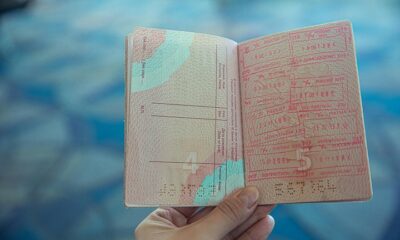
 Education3 months ago
Education3 months agoUK and US Tighten Student Visas: What Indian Schools and Students Must Know
-
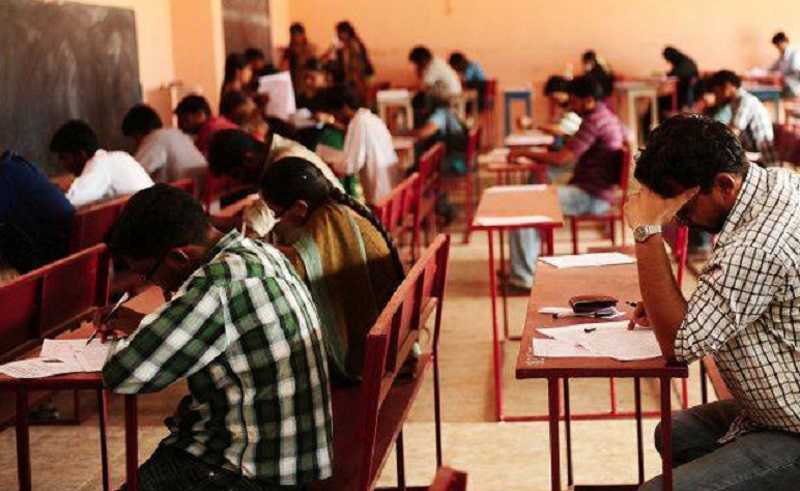
 Education3 months ago
Education3 months agoNational Task Force Calls for Wider Participation in Surveys on Student Well-being and Suicide Prevention
-
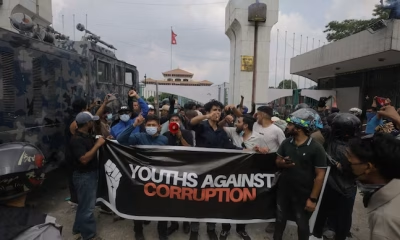
 Education3 months ago
Education3 months agoWhat Nepal’s Gen Z Protests Teach Us About Education, Civic Sense, and Media Literacy
-
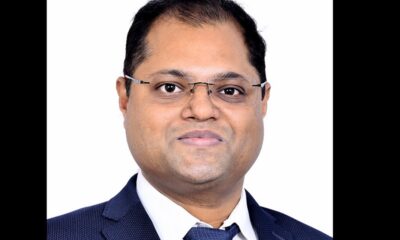
 Education3 months ago
Education3 months agoKidspreneurship Appoints Kushark Jaiswal as Chief Global Officer to Drive International Expansion
-
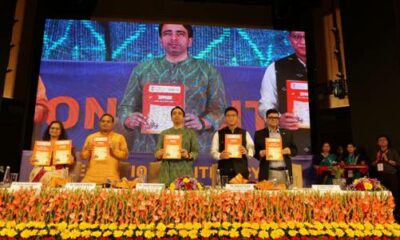
 Education3 months ago
Education3 months agoHimachal Joins List of Fully Literate States as India Marks International Literacy Day 2025
-
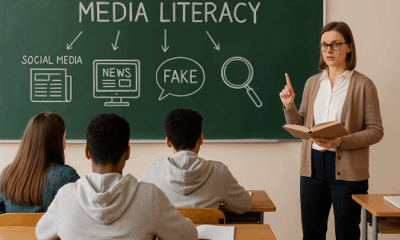
 Education3 months ago
Education3 months agoParliamentary Panel Calls for Media Literacy Curriculum in Schools
-
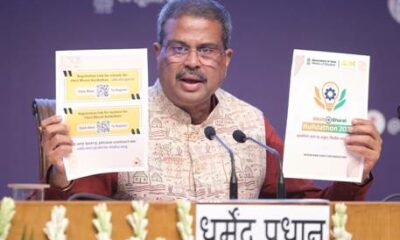
 Education3 months ago
Education3 months agoMinistry of Education launches Viksit Bharat Buildathon 2025 to Ignite Innovation among School Students
















